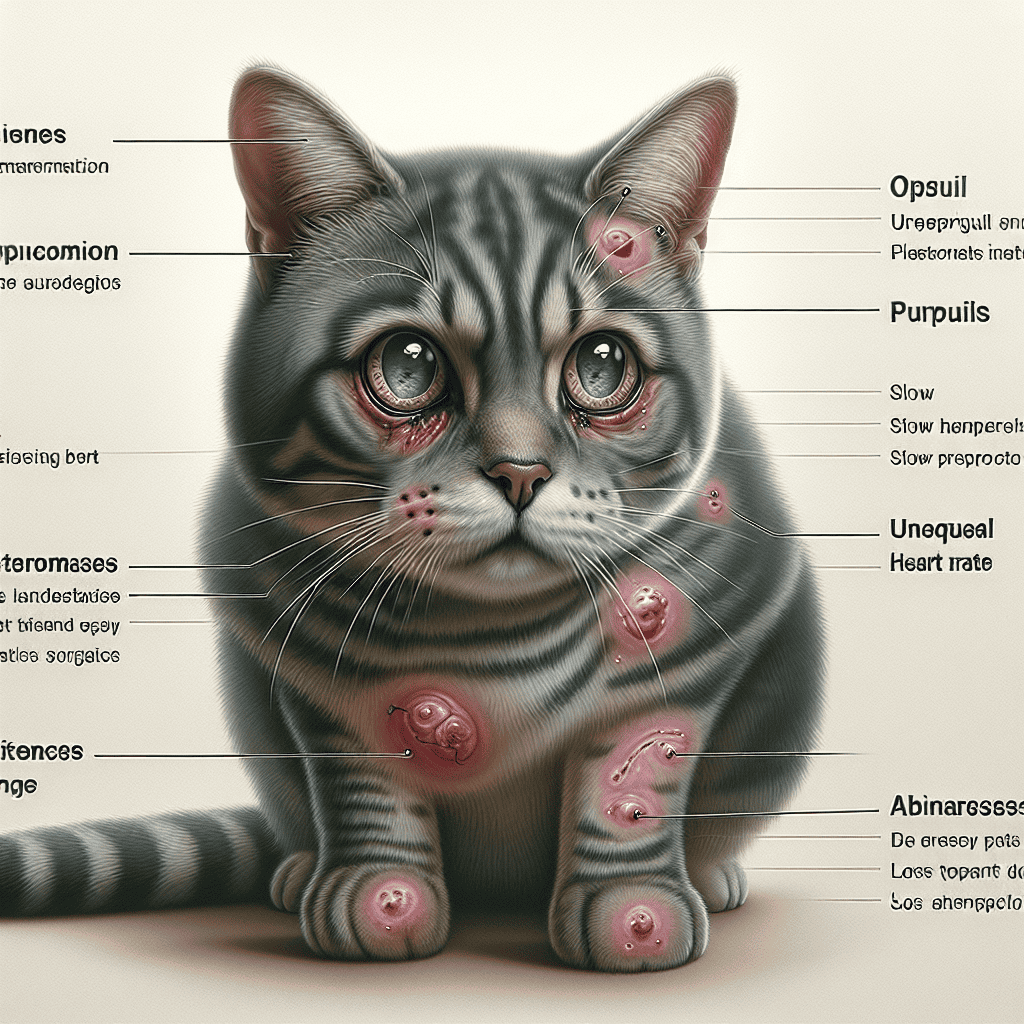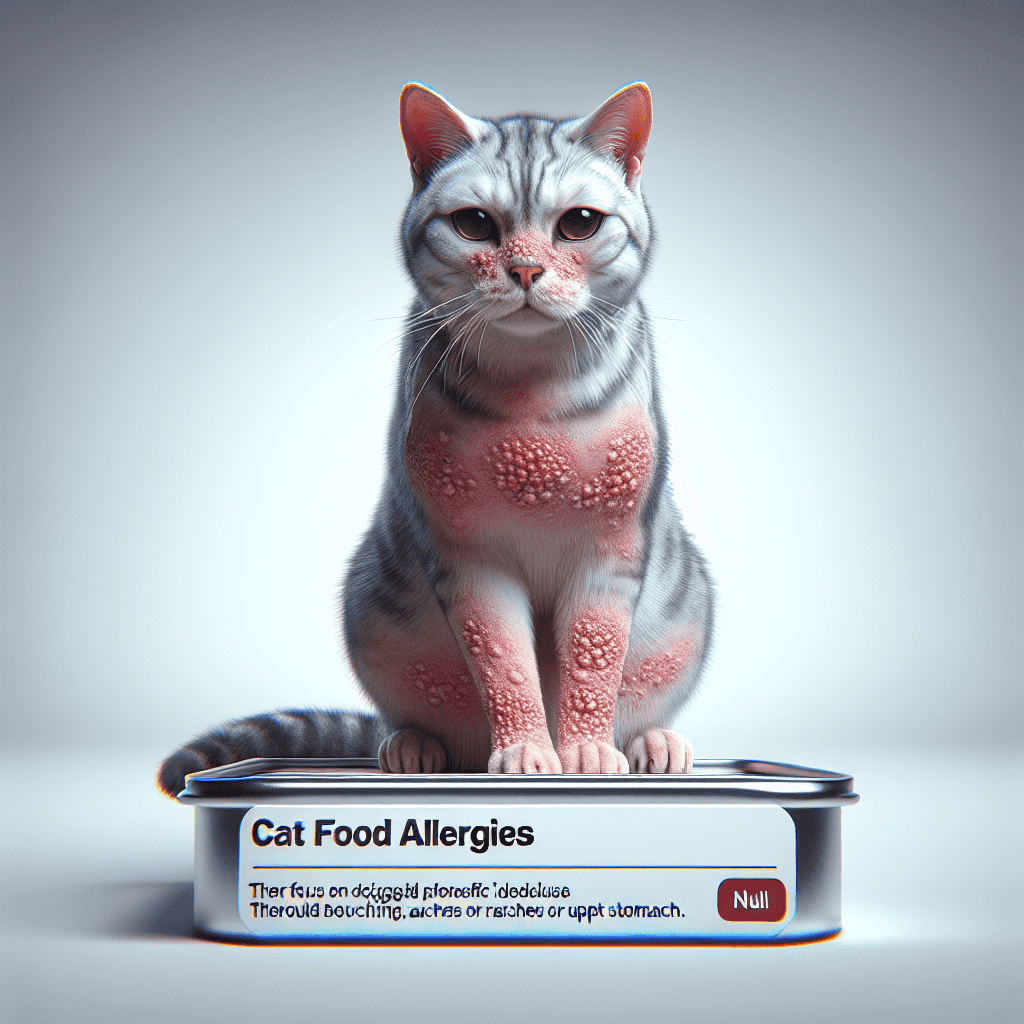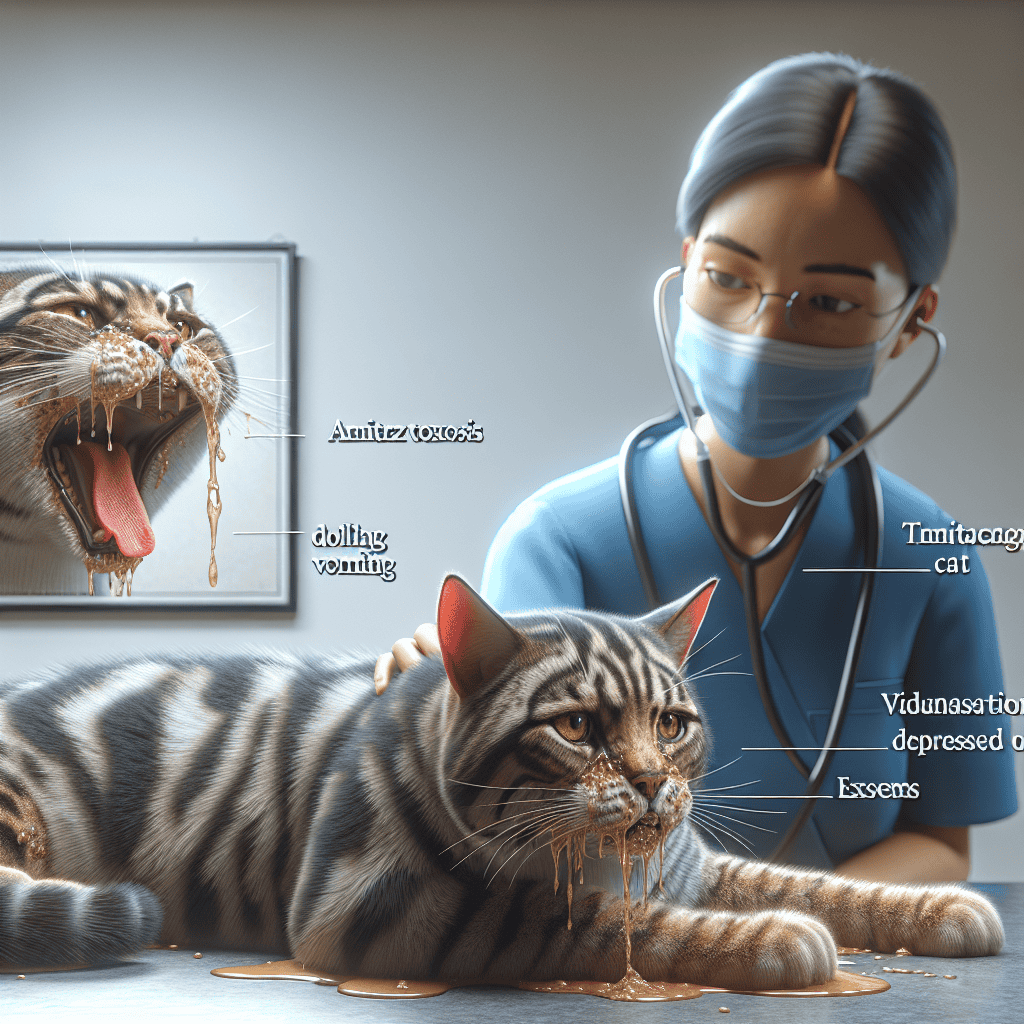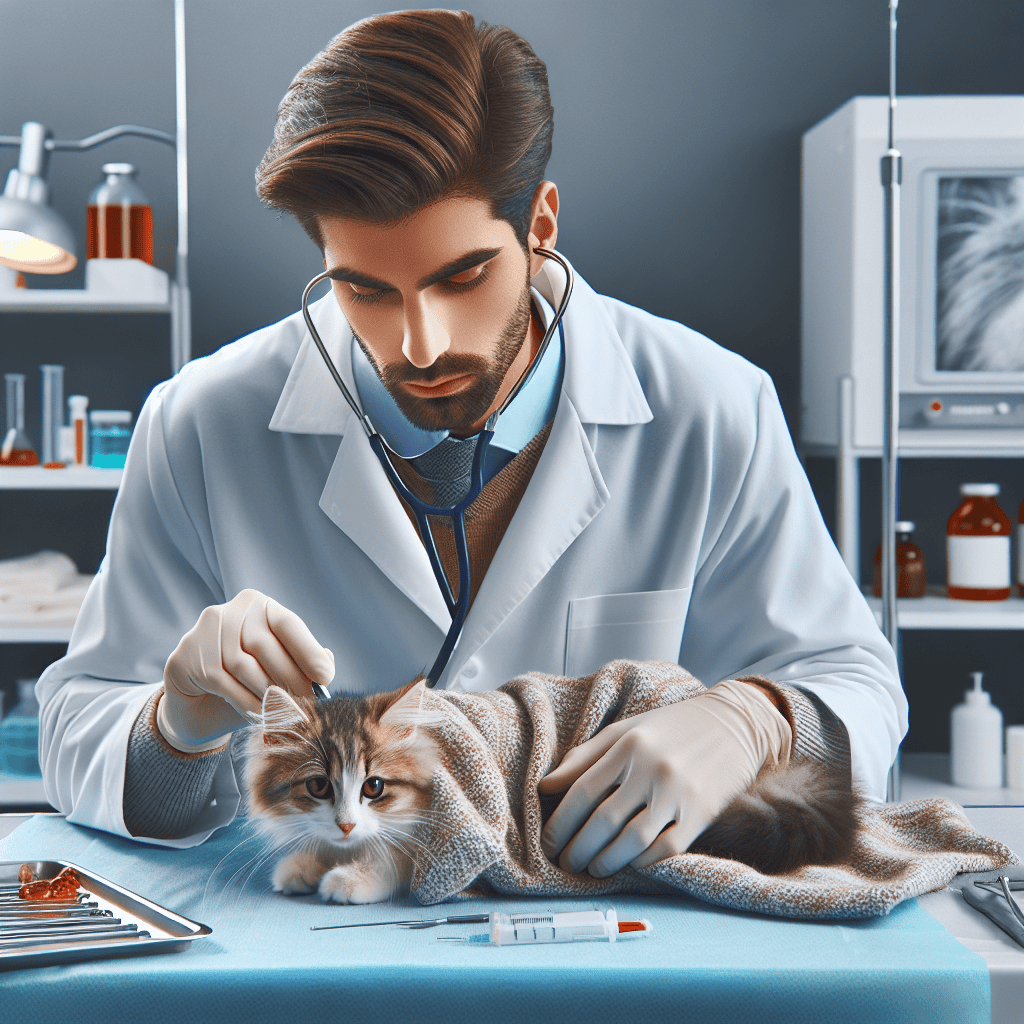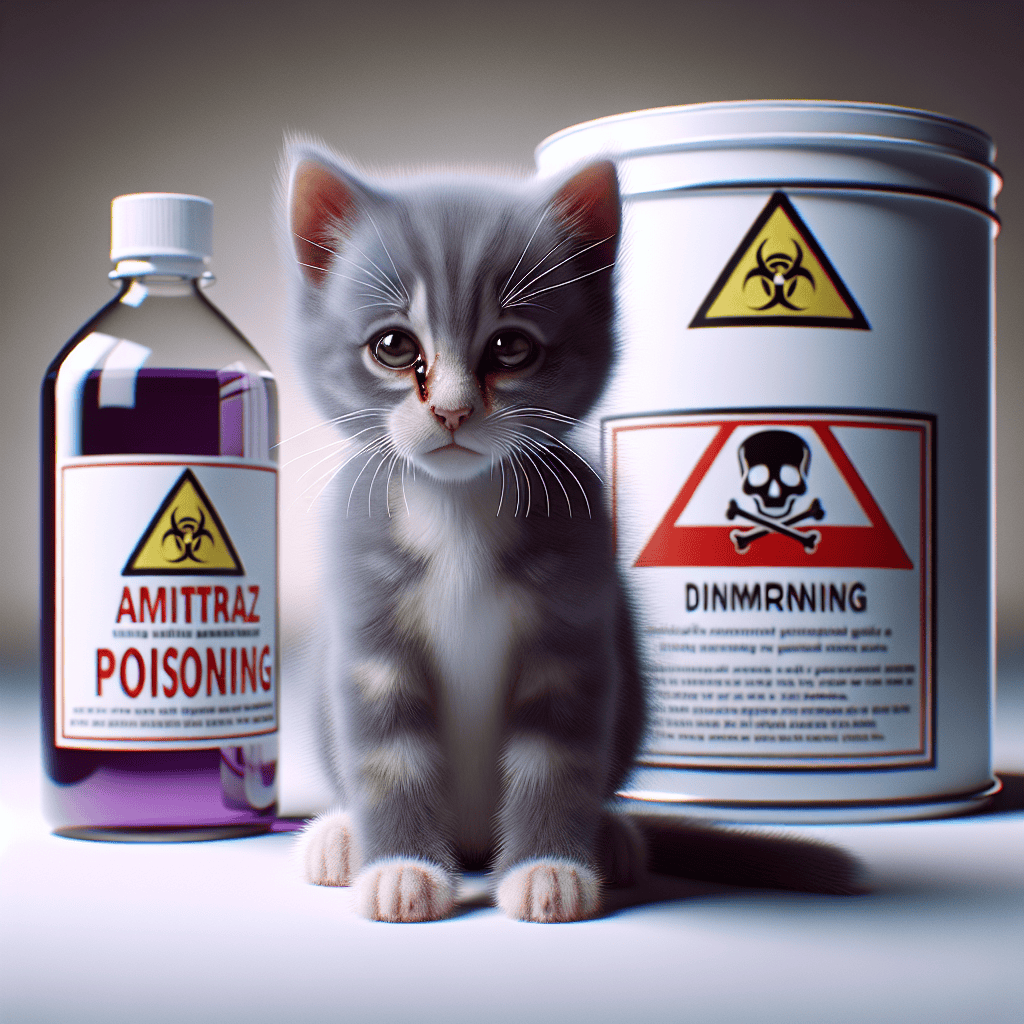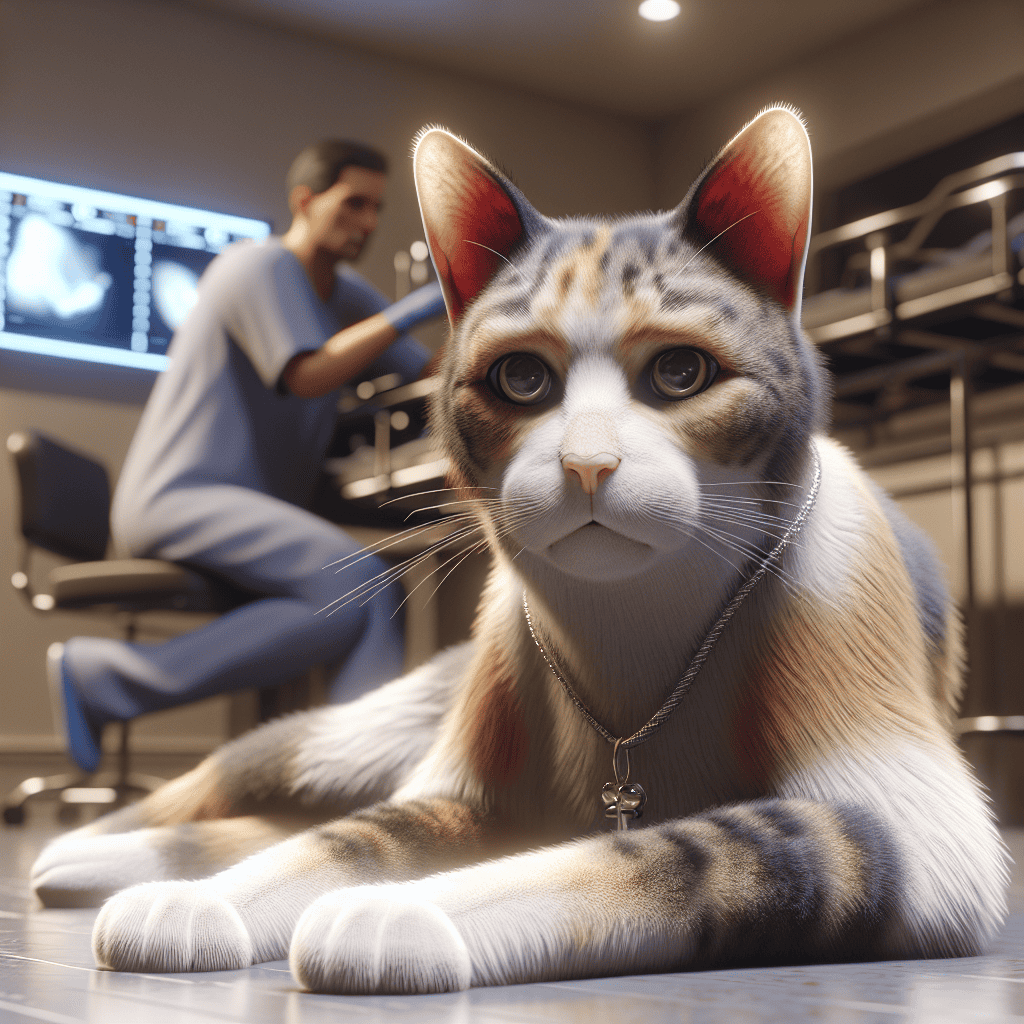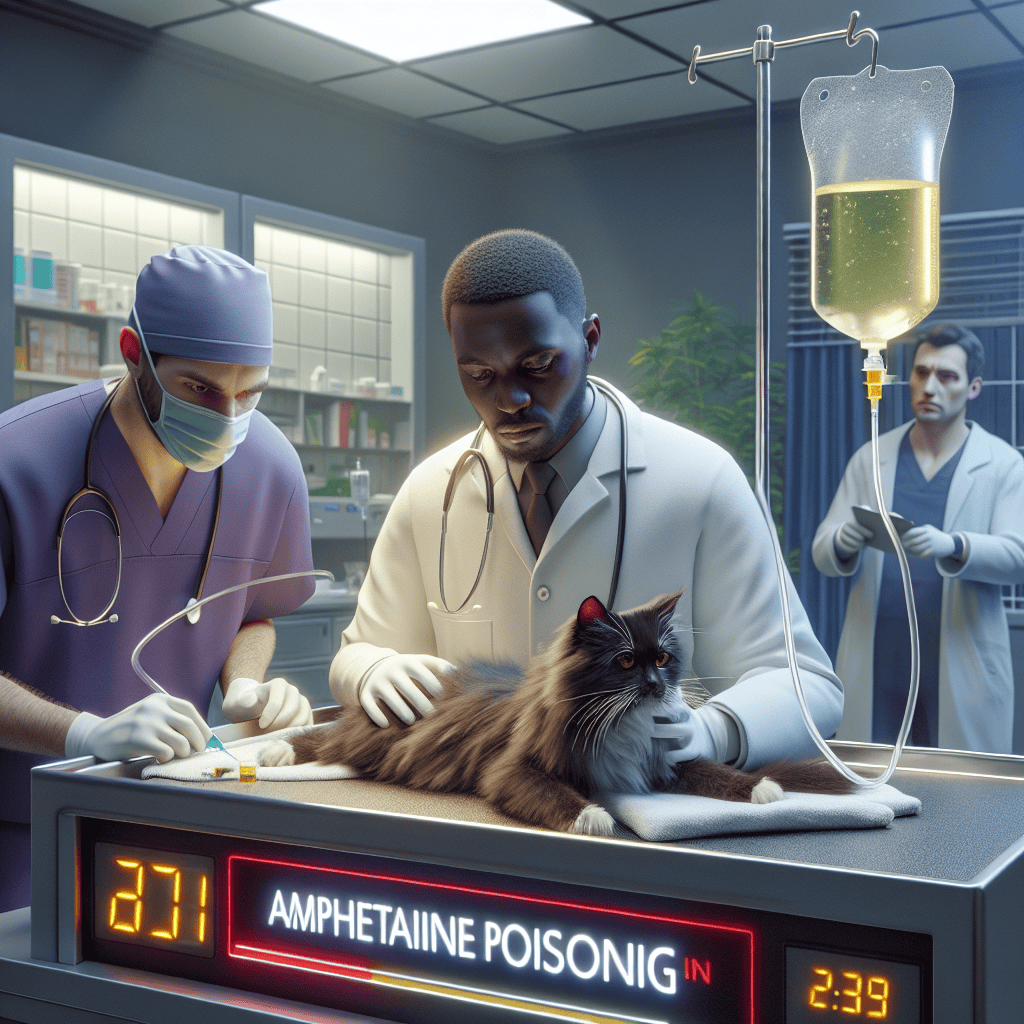Understanding Amitraz Poisoning
Amitraz poisoning in cats is a concerning condition that can have serious health implications. In this section, we will delve into what exactly amitraz is and how cats can get exposed to this toxic substance.
What is Amitraz?
Amitraz is an active ingredient commonly found in various topical medications and dips used for the treatment of external parasites in animals. It belongs to a class of chemicals called formamidines. Amitraz works by targeting and disrupting the nervous systems of ectoparasites like ticks and mites, leading to their elimination.
The use of amitraz-based products is prevalent in the agricultural and veterinary sectors. While it can be effective in treating certain conditions in animals, it is important to remember that amitraz is highly toxic to cats when they are directly or indirectly exposed to it.
To learn more about the symptoms and treatment of amitraz toxicity in cats, refer to our article on amitraz toxicosis in cats.
How Do Cats Get Exposed?
Cats can get exposed to amitraz in various ways. The most common routes of exposure include:
-
Direct Contact: Cats may come into direct contact with amitraz-based products when they are applied to other animals in the household, such as dogs or livestock. Cats are highly sensitive to amitraz, and even a small amount of residual product on the skin of another animal can lead to toxicity in felines.
-
Ingestion: Cats, especially kittens, may inadvertently ingest amitraz if they groom or lick the fur of animals that have been treated with amitraz-based products. This can occur if they share living spaces with other animals or come into contact with contaminated bedding or furniture.
-
Accidental Exposure: Cats may accidentally come into contact with amitraz if they access areas where the substance has been spilled or stored improperly. It is crucial to store amitraz-based products securely and out of reach of pets to prevent accidental exposure.
It is important for cat owners to be aware of the potential risks associated with amitraz and take necessary precautions to ensure the safety of their feline companions. For more information on the symptoms, diagnosis, and treatment of amitraz poisoning in cats, refer to our article on treating amitraz poisoning in cats.
Symptoms of Amitraz Toxicity
Amitraz toxicity in cats can manifest through various physical signs and behavioral changes. Recognizing these symptoms is crucial for identifying and addressing the issue promptly.
Physical Signs
Physical signs of amitraz toxicity in cats may include:
- Lethargy and weakness
- Loss of appetite
- Vomiting and diarrhea
- Increased or decreased heart rate
- Low body temperature
- Dilated pupils
- Difficulty breathing
- Uncoordinated movements or tremors
It’s important to note that these physical signs can vary depending on the severity of the poisoning and the individual cat. If you observe any of these symptoms or suspect amitraz poisoning in your cat, seek immediate veterinary assistance.
Behavioral Changes
Amitraz toxicity can also lead to various behavioral changes in cats. These behavioral changes may include:
- Agitation or restlessness
- Depression or anxiety
- Disorientation
- Excessive drooling or pawing at the mouth
- Changes in vocalization patterns
- Increased or decreased thirst
- Changes in urination habits
These behavioral changes may be indicative of the cat’s discomfort and distress. If you notice any unusual behaviors in your cat, especially after potential exposure to amitraz, it’s crucial to consult a veterinarian for a proper diagnosis and guidance.
It’s important to remember that the symptoms of amitraz toxicity can resemble other health conditions, so a professional evaluation is vital for accurate diagnosis and appropriate treatment. If you suspect amitraz poisoning in your cat, do not attempt to treat the condition at home. Instead, contact your veterinarian immediately for guidance and assistance.
For more information on treating amitraz poisoning in cats, please refer to our article on treating amitraz poisoning in cats.
Diagnosis and Treatment
When it comes to amitraz toxicity in felines, prompt diagnosis and treatment are crucial to ensure the well-being of the affected cats. Veterinary professionals play a vital role in identifying and managing cases of amitraz poisoning. Let’s take a closer look at the diagnosis process and the available treatment options.
Veterinary Examination
Upon suspicion of amitraz poisoning in a cat, a thorough veterinary examination is essential. The veterinarian will evaluate the cat’s symptoms, conduct a physical examination, and inquire about any potential exposure to amitraz. It is important for cat owners to provide accurate information about any contact with amitraz products, such as tick collars or dips.
To confirm the diagnosis, the veterinarian may also perform additional tests. These tests could include blood work, urinalysis, and imaging studies, which help assess the cat’s overall health and identify any potential complications. The veterinarian will consider a range of factors, including the cat’s symptoms, history, and test results, to make an accurate diagnosis.
Treatment Options
The treatment of amitraz toxicity in cats focuses on addressing the symptoms and minimizing the effects of the toxic substance. The specific treatment plan may vary depending on the severity of the poisoning and the cat’s overall condition. Common treatment options include:
-
Decontamination: If the cat has recently ingested or had contact with amitraz, the veterinarian may induce vomiting or perform gastric lavage to remove the substance from the stomach. Activated charcoal may also be administered to prevent further absorption of the toxin.
-
Supportive Care: Cats with amitraz poisoning may require supportive care to manage their symptoms and maintain their overall well-being. This can include intravenous fluids to prevent dehydration, medications to control vomiting or diarrhea, and monitoring of vital signs.
-
Specific Antidotes: In severe cases, the veterinarian may administer specific antidotes to counteract the effects of amitraz. These antidotes work by blocking the action of amitraz on the body’s systems.
-
Monitoring and Observation: Throughout the treatment process, the cat will be closely monitored to assess their response to treatment, monitor vital signs, and address any potential complications.
It is crucial for cat owners to follow the veterinarian’s instructions and administer any prescribed medications as directed. Additionally, it is important to provide a calm and stress-free environment for the cat during their recovery.
Remember, early detection and immediate veterinary care are essential in improving the prognosis for cats affected by amitraz toxicity. If you suspect that your cat has been exposed to amitraz or is displaying symptoms of poisoning, seek veterinary assistance without delay. For more information on treating amitraz poisoning in cats, visit our article on treating amitraz poisoning in cats.
Prevention Tips
Taking measures to prevent amitraz toxicity in cats is crucial to ensuring their safety and well-being. Here are some important safety measures and proper storage practices to minimize the risk of exposure to amitraz.
Safety Measures
-
Keep amitraz products out of reach: Store products containing amitraz in a secure location that is inaccessible to cats. This includes insecticidal collars, sprays, and dips that contain amitraz. Ensure that the packaging is intact and properly sealed.
-
Read and follow instructions: Carefully read the labels and instructions provided with any products containing amitraz. Follow the recommended dosage and application instructions to ensure the safe use of the product.
-
Avoid off-label use: Do not use amitraz products intended for other animals on cats unless specifically directed by a veterinarian. Always consult with a veterinarian before using any products on your cat.
-
Supervise outdoor activities: If your cat spends time outdoors, keep a close eye on them to prevent them from coming into contact with potentially contaminated areas or objects. This is especially important in areas where amitraz may have been used, such as gardens or agricultural fields.
-
Regularly inspect your cat: Conduct routine inspections of your cat’s coat and skin for any signs of external parasites. Promptly address any infestations with appropriate and veterinarian-approved treatments.
Proper Storage
-
Secure storage: Store amitraz products in a locked cabinet or a high shelf that is out of reach of children and pets. Ensure that the storage area is dry, cool, and away from direct sunlight.
-
Follow disposal guidelines: When disposing of amitraz products, adhere to local regulations. Do not dispose of them in household trash or pour them down the drain, as they can contaminate the environment.
-
Keep products separate: Store amitraz products separately from other household items, such as food, beverages, and medications. This helps prevent accidental ingestion or exposure.
-
Properly seal containers: Ensure that containers holding amitraz products are tightly closed and sealed to prevent leaks or spills. This reduces the chances of accidental contact with the product.
By following these safety measures and proper storage practices, you can significantly reduce the risk of amitraz toxicity in cats. If you suspect your cat has been exposed to amitraz or is showing symptoms of amitraz poisoning, seek immediate veterinary assistance. For more information on treating amitraz poisoning in cats, refer to our article on treating amitraz poisoning in cats.
Risks and Complications
When it comes to amitraz toxicity in felines, there are several potential dangers and long-term effects that cat owners should be aware of.
Potential Dangers
Amitraz, commonly used in tick and flea control products for dogs, can be highly toxic to cats. Even a small amount of exposure to amitraz can lead to serious health complications in felines. It is important to note that amitraz products for dogs should never be used on cats, as their physiology differs and they lack the necessary enzymes to metabolize the chemical.
If a cat comes into contact with amitraz, whether through direct exposure or by grooming a dog treated with amitraz products, it can lead to amitraz toxicosis in cats. The potential dangers associated with amitraz toxicity include:
- Central nervous system depression: Cats may exhibit symptoms such as lethargy, weakness, and sedation as a result of the toxic effects of amitraz on their central nervous system.
- Hypothermia: Amitraz toxicity can cause a drop in body temperature, leading to hypothermia in cats.
- Bradycardia: Cats may experience a decrease in heart rate, known as bradycardia, which can further contribute to their lethargic state.
- Respiratory depression: Amitraz poisoning can lead to respiratory depression, resulting in shallow or slow breathing in affected cats.
It is crucial for cat owners to be aware of these potential dangers and take immediate action if they suspect their cat has been exposed to amitraz. Prompt veterinary attention is necessary to ensure the best possible outcome for the cat.
Long-Term Effects
In addition to the acute symptoms, amitraz toxicity in cats can have long-term effects on their health. These effects may vary depending on the severity of the poisoning and the promptness of treatment. Long-term complications associated with amitraz poisoning in cats can include:
- Organ damage: Amitraz toxicity can cause damage to various organs, including the liver, kidneys, and gastrointestinal tract. This damage may have long-lasting consequences for the cat’s overall health and well-being.
- Respiratory issues: Cats who have experienced respiratory depression due to amitraz poisoning may be more susceptible to respiratory problems in the future.
- Neurological issues: In severe cases of amitraz toxicity, cats may experience long-term neurological effects, such as tremors, seizures, or impaired coordination.
It is important to closely monitor cats who have experienced amitraz poisoning and consult with a veterinarian regarding any potential long-term effects. Regular check-ups and follow-up examinations can help ensure that any complications are detected and managed appropriately.
Prevention is key in avoiding the risks and complications associated with amitraz toxicity in cats. Cat owners should be vigilant in keeping their cats away from amitraz-containing products and should seek immediate veterinary care if they suspect their cat has been exposed. For more information on treating amitraz poisoning in cats, refer to our article on treating amitraz poisoning in cats.







